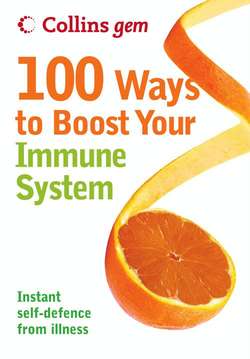Читать книгу 100 Ways to Boost Your Immune System - Theresa Cheung, Theresa Cheung - Страница 16
Allergies
ОглавлениеAllergic disorders occur when the immune system over-reacts to exposure to substances in the environment and triggers defence mechanisms such as swelling, watery eyes and sneezing. The substances that provoke this over-reaction are called allergens, and over-reactions to allergens are typically controlled by medications called antihistamines.
When an allergen enters the body of a person with a sensitive immune system, histamine and other chemicals are released by certain cells. It is these that cause itching, swelling, watery mucus production, skin rashes and other symptoms. Such symptoms are inconvenient and unpleasant but are not life-threatening; treatment generally involves the use of medications, such as antihistamines. Sufferers can also take steps to reduce their exposure to known allergens.
The most common allergic disorders include:
Asthma: A respiratory disorder that involves an allergic response by the lungs and can cause breathing problems. If the lungs are sensitive to certain allergens, such as pollen or dust mites, this can trigger a narrowing of the breathing tubes in the lungs, making it hard for the person to breathe. Asthma symptoms can also be triggered by respiratory infections, exercise, cold air, stress, smoke and other pollutants.
Eczema: An over-sensitive reaction that occurs in the skin and causes a scaly, itchy rash. Exposure to environmental irritants can worsen symptoms, as can dry skin, exposure to water, temperature changes and stress. Consult your doctor for a diagnosis of eczema because it can be hard to differentiate from other skin disorders.
Food allergies (to products such as nuts), seasonal allergies (such as hay fever) and environmental allergies (to organisms such as dust mites). All of these are also caused by an over-sensitive immune system, which leads to an incorrect immune response when the immune system reacts to allergens or substances that are generally harmless.
